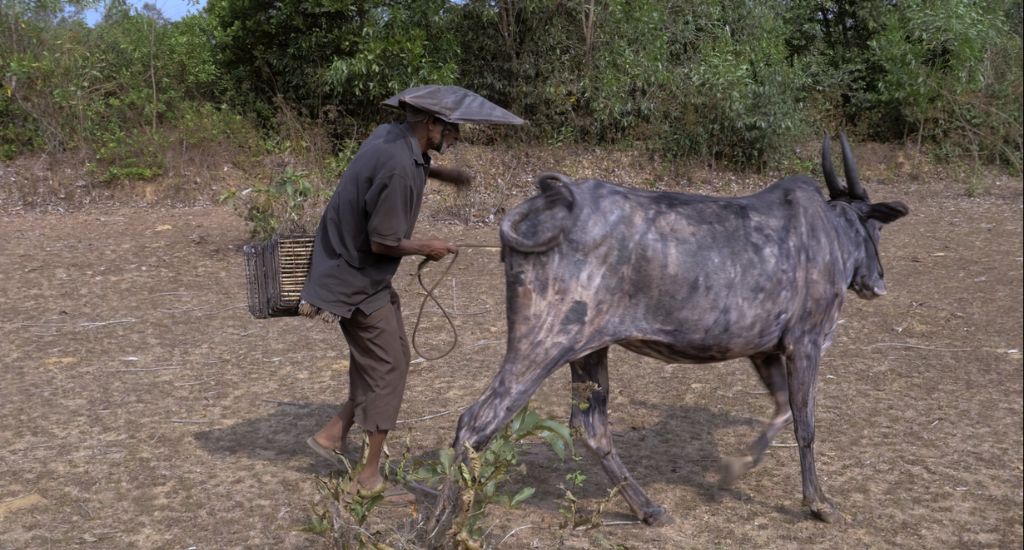
Documentary highlights plight of Hakkipikki tribe
Members of the community found in Karnataka were in the news for being stranded by the armed conflict sweeping Sudan in recent times.

Members of the community found in Karnataka were in the news for being stranded by the armed conflict sweeping Sudan in recent times.
Not many have heard of the Hakkipikki tribe. Yet, they have been in the headlines recently – both in India and abroad.
As civil strife sweeps distant Sudan, many civilians from far and wide have been caught up and stranded by the conflict. Among them were 300 members of the Hakkipikki tribe hailing from the districts of Mysuru, Shivamogga, Chikkaballapur and Ramanagara in Karnataka.
Rescued since then by the Indian government that finally managed to evacuate them from an exceptionally hostile situation, the Hakkipikki tribe has been in the news since then
Turning the spotlight on them further has been a new documentary that sheds light on the nomadic tribe that originally hailed from Chittorgarh in Rajasthan. Having moved southwards after Maharana Pratap lost to Mughal Emperor Akbar in a battle in the 16th century, they came to settle in parts scattered across Karnataka.

Made by Madhu Bhushan and Vinod Raja, the documentary ‘Sikkidare Shikari, Illadidre Bhikari’ (Birdcatchers or Beggars?) that premiered recently at the Bangalore International Centre unravels the story of the tribe through a series of conversations with members of the Hakkipikki tribe itself.
Known to speak in Waghri Boli, a scriptless language of their own, there are 11,892 people in Karnataka who identify themselves as members of the Hakkipikki tribe. Some 9,952 of them live in rural areas.
Their name – Hakki means bird in Kannada – suggests that they were traditionally hunters and bird catchers.
Also Read: Blending tribal people into India’s mainstream
After independence, Hakkipikkis were officially recognised and listed as a nomadic community in the list of ‘Nomadic Tribes, Semi-Nomadic Tribes and De-Notified Tribes’. They were no longer considered ‘born criminals’, as they were during the British rule. Subsequent governments have attempted to settle them in one place, by giving them land and nudging them to give up their nomadic life.

But the new documentary gives a taste of the deep frustration that many of them still suffer. Many complained that they were still fighting for their share of land. They were also angry at the government for keeping them away from their original profession – hunting.
“We were also part of Wodeyars hunting party,” Kumuda, referring to the erstwhile rulers of Mysuru, said in the film. She is a writer and researcher who is part of the Hakkipikki community.
In the movie, one other tribe member explained how the Wodeyars decided to give the community land near Hunsur after he was impressed with these “scantily-clad forest people” who came to greet the king.
After centuries of being in what is present-day Karnataka, they now speak fluent Kannada. Community members can also be found in other parts of the country but with different names. For example, they are known as Nari Kuruvars in Tamil Nadu.
Members of the tribe have interesting names too, such as Newsbee, Chocolate Bai, Hindu and Amavasye.
The makers of the documentary have done a good job of capturing a myriad of voices and emotions of the tribe.
Also Read: The ‘art houses’ of Odisha’s Santal tribe

“We wanted to show that even though the odds are against them, they have survived. No thanks to the government, but thanks to their own innate survival skills,” pointed out Bhushan.
But how did they land up in Sudan?
The documentary helps viewers with a context to understand that too. While the tribe continues to struggle to own land, many make a living through hawking. Many landed up in foreign countries, including Sudan, to sell herbal products like massage oils and hair oils.
“They borrow rupees 5-10 lakhs for these trips and hope to hit a jackpot. If they do, they live like kings. If not, they will come down to earth,” one of the documentary makers explained.
Warzone or not, apparently, nothing fazes members of the Hakkipikki tribe from making an honest living.
Also Read: Bengal’s Sabar tribe struggles for survival
The lead image is a still from the documentary, Sikkidare Shikari, Illadidre Bhikari, which highlights the plight of the Hakkipikki tribe (Photo by Amulya B)
Amulya B is a multimedia journalist, writer and translator based in Bengaluru. Her stories explore the intersection of culture, society and technology. She is the winner of Toto Funds the Arts for creative writing and Laadli Award. She is a Rural Media Fellow 2022 at Youth Hub, Village Square.